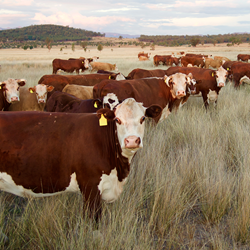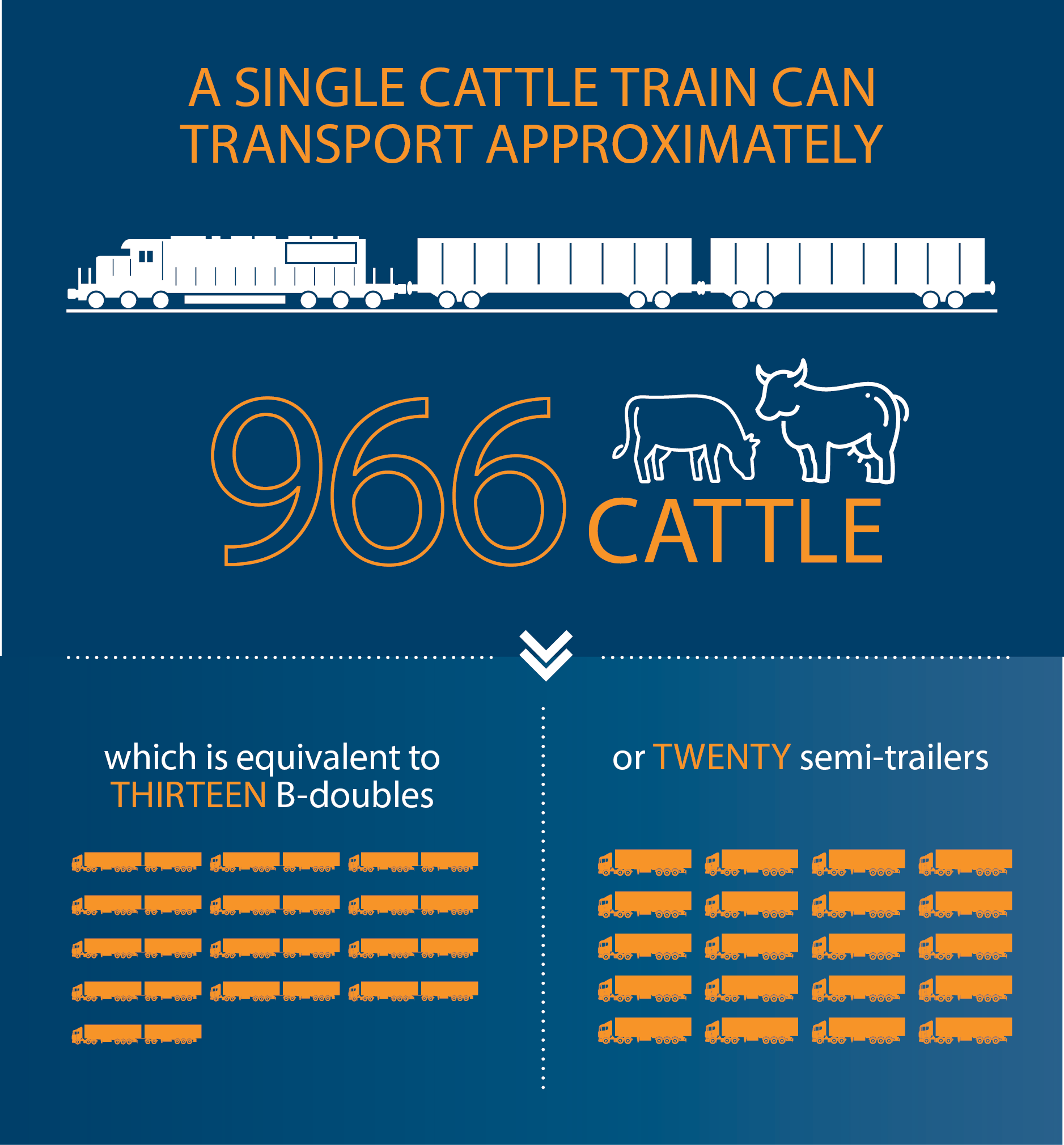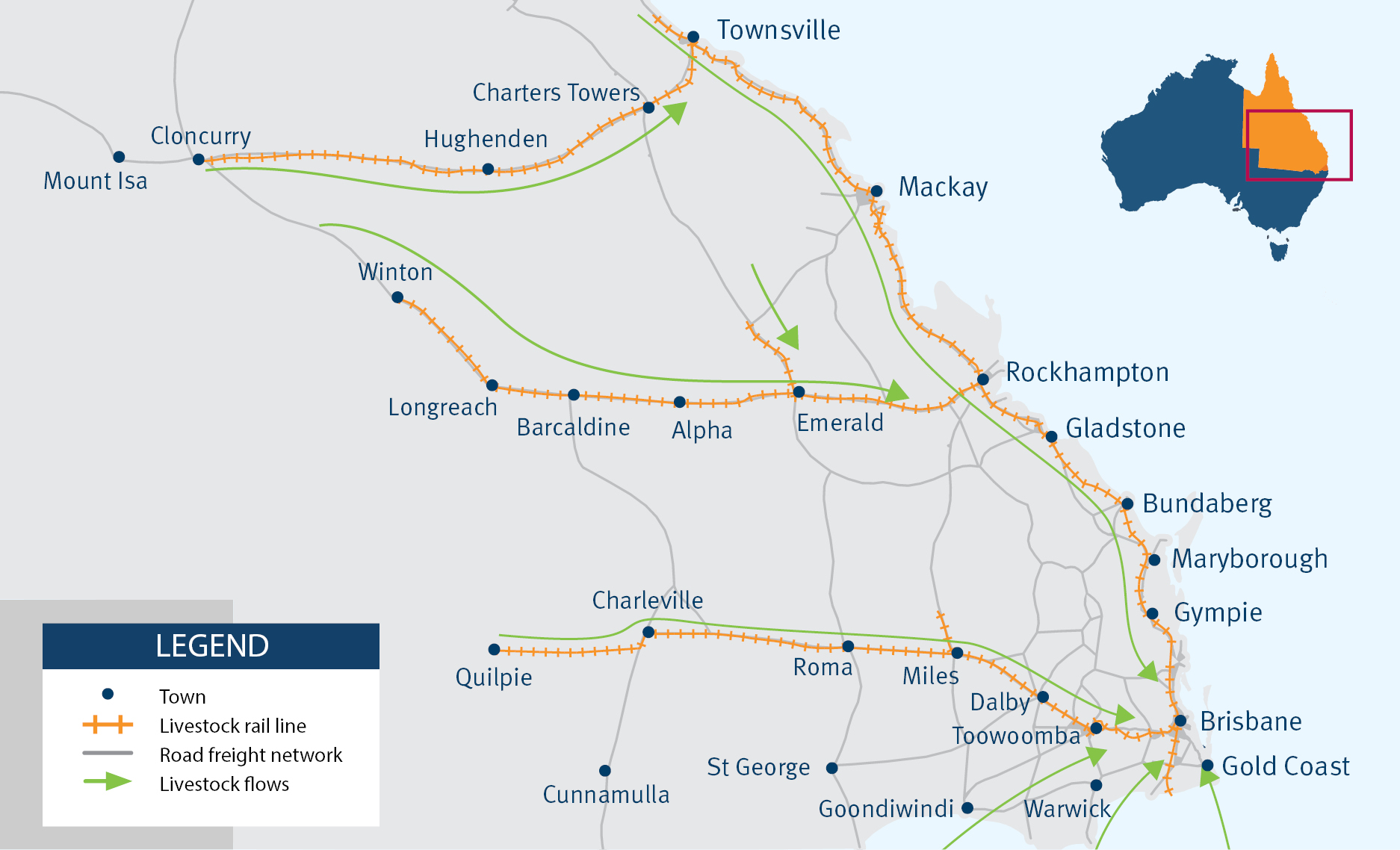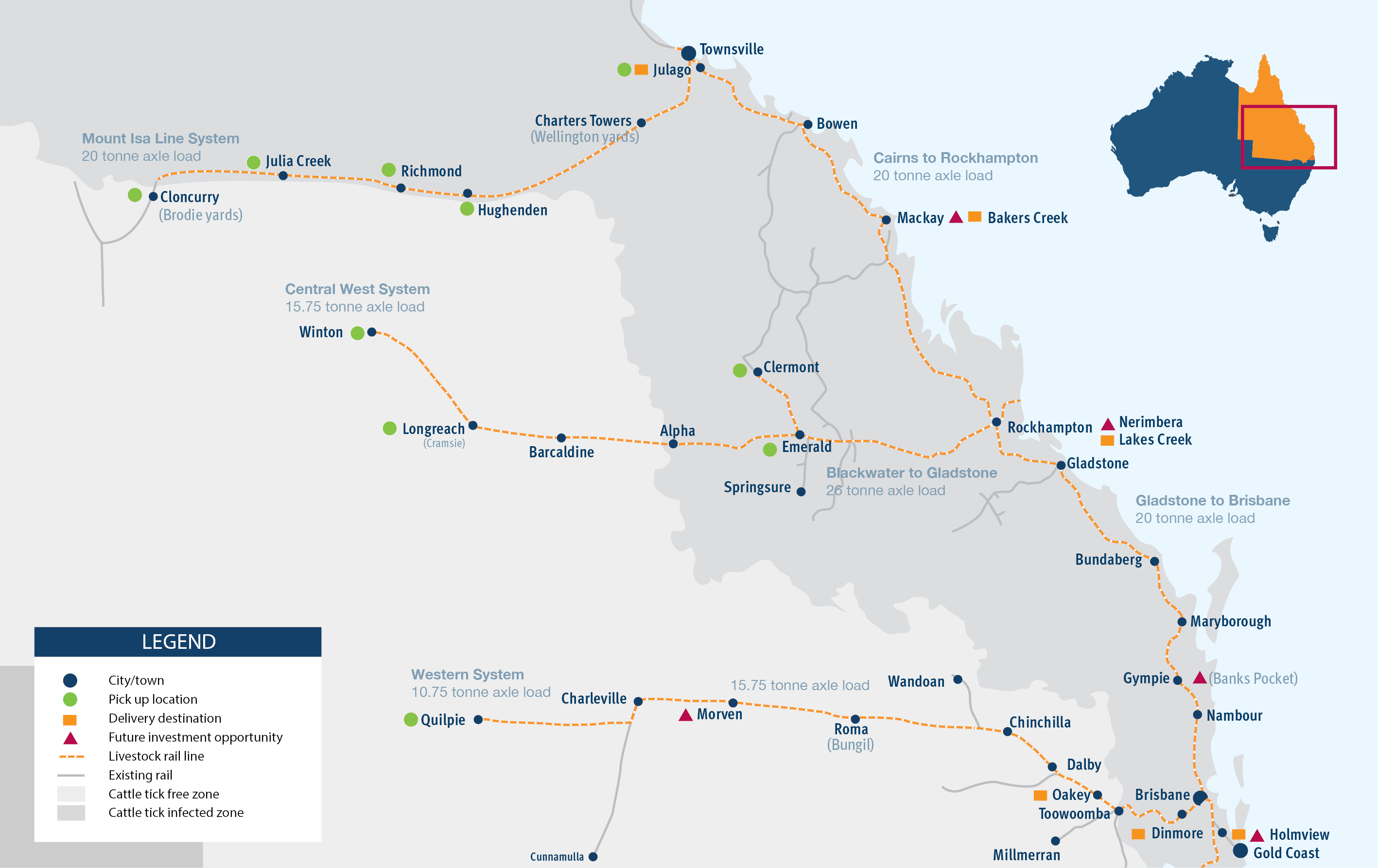Cattle Rail Transport

In August 2019 the Queensland Government released the Queensland Beef Processing Strategy 2019-2022, to support and grow the state’s beef processing industry.
The Cattle Rail Transport – Queensland Government Planning and Investment Opportunities has been developed to demonstrate the Department of Transport and Main Road’s ongoing commitment to investment in rail transport. This document also informs the Freight for the Meatworks Sector – Future Directions paper (an action from the Queensland Beef Processing Strategy), illustrating strategic investments already made, and future planning opportunities that exist to support long distance cattle train services.
The Beef Industry in Queensland
Creating jobs in a strong economy is one of the Queensland Government’s Advancing Queensland Priorities and the beef processing sector is a critical part of this. The industry value adds approximately $1 billion annually to Queensland and employs approximately 10,000 people directly. The industry and its supply chains are a significant regional employer and a major contributor to regional economies.
The beef processing industry faces many challenges competing in international markets, with transport a considerable operational cost due to the geographical size of Queensland and vast distances between growing and processing locations.
There are currently 15 major export certified abattoirs across Queensland operated by companies including JBS, Teys/Cargill, NH Foods, Kilcoy Global Foods, Australian Country Choice, Nolan Meats, Stanbroke and John Dee. Cattle can travel vast distances including from western Queensland to these abattoirs which are located along the east coast and south east corner.
Beef processors rely on a combination of road, rail and port access for the delivery of livestock and goods and transport of finished products to domestic and overseas markets.
![]()
48.1%
of Australian beef and veal products are processed in Queensland
![]()
$4.92b
worth of Queensland beef exports in 2017–18
![]()
10,000
people employed in an industry which is a major contributor to regional economies
Livestock flows
Consultation during the development of the Queensland Beef Processing Strategy highlighted that keeping processing costs down is critical for maintaining Queensland’s global competitiveness and growing the beef industry in Queensland.
An efficient freight network is critical to Queensland’s global competitiveness and economic performance. The Queensland Freight Strategy - Advancing Freight in Queensland points to unlocking economic opportunities through optimising the use of existing freight infrastructure and targeting investment towards creating economic opportunities.
Beef processors rely on a combination of road, rail and port access for the delivery of livestock and goods and transport of finished products to domestic and overseas markets.
Reflecting the importance of the beef processing industry, the Queensland Government provides significant financial and non-financial support throughout the supply chain. This includes a substantial investment in transport infrastructure and freight services.
The Department of Transport and Main Roads works continually with a range of beef industry participants to ensure the optimisation of existing infrastructure and the building of targeted new infrastructure is complementary to the processing of beef across the road and rail transport modes.
Cattle Rail Transport Investment
Queensland is the only state where cattle is transported by both rail and road. Rail is the preferred mode for long distance cattle transport as it provides for greater efficiencies for high volume and long-distance movements and cattle generally arrive in better condition. Additionally, cattle transport on rail reduces the impact on road infrastructure and can have positive road safety and environmental benefits through reduced truck trips.
The Department of Transport and Main Roads provides significant assistance to the livestock industry through the Livestock Transport Services Contract. The contract subsidises cattle train services, which enable the transportation of livestock from regional hubs across the state to benefit the industry. This currently assists transportation to processing facilities on Queensland’s east coast.
The contract subsidises livestock rail services and ensures a minimum standard is offered to the livestock industry. To complement these services and ensure continued operation, in 2017 the Queensland Government introduced new cattle crates into service at a cost of approximately $10 million.
The Department of Transport and Main Roads also has a contract with Queensland Rail that funds rail infrastructure maintenance and upgrades. Recent targeted investments in Rockhampton and Oakey exceed $6 million and will improve supply chain efficiency by reinstating or improving rail access for processors.
Through these and future targeted planning the Queensland Government has a long-term commitment to growing rail transport of cattle.

A single cattle train can transport approximately 966 heads of cattle which is equivalent to 13 B-doubles or 20 semi-trailers.
Priority Planning
The map highlights recent and future rail related infrastructure projects on which the government is working actively with the beef industry. This includes the identification of future investment opportunities between industry and all level of governments to enhance the future cattle supply chain system - one that has complementary rail and road access.
The industry value adds approximately $1 billion annually to Queensland.
References
- Queensland Beef Processing Strategy 2019-2022 on the Department of State Development, infrastructure, Local Government and Planning website.
- Queensland Freight Strategy–Advancing Freight in Queensland 2019 on our website.
- Download a copy of the Cattle Rail Transport fact sheet (PDF, 1.34MB)
- Last updated 8 September 2022



